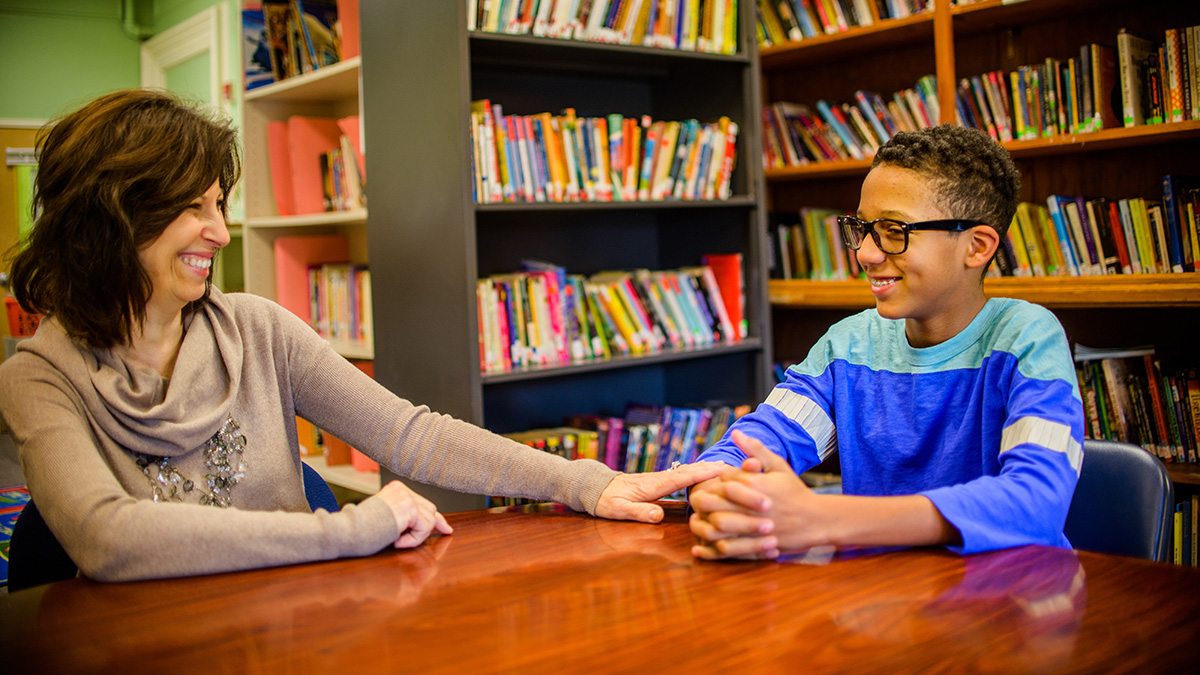Expanding access to, improving opportunities through better mental health resources in rural North Carolina schools
The UNC School of Education's new “Helping Heels” project will bring school counselors-in-training to high-needs schools.

With a $2.27 million grant from the U.S. Department of Education, the UNC School of Education will work to reduce and mitigate inequities of mental health disparities among low-income rural K-8 students by increasing the number of its highly qualified school counseling graduates in the schools where those students learn.
The grant funding makes possible “Helping Heels — Expanding Access to Care and Improving Opportunities for Rural Schools in the Tar Heel State,” a five-year project that will place school counselors-in-training in rural high-needs elementary and middle schools and incentivize the school’s counseling graduates to seek employment in those schools or similar ones.
By increasing the number of qualified school-based mental health professionals from rural areas and from culturally diverse backgrounds in rural high-needs schools and districts, the project aims to reduce and mitigate inequities of mental health disparities services and improve mental health and educational outcomes for minoritized and marginalized students.
Dana Griffin, an associate professor in the school counseling program, is the project’s principal investigator. Faculty members Dorothy Espelage; Lewis Hatcher; and Robert Martinez will serve as co-principal investigators.
“As a product of a rural community, I know the kind of impact this funding can have in helping us to address a critical need in rural schools,” Griffin said. “This grant shows the U.S. Department of Education’s recognition of the important role school counselors play in our public schools. School counselors have the capacity to address the mental well-being of students but are often overlooked as a resource in schools. This grant funding allows us to bring the school counseling profession to the forefront in the conversation on addressing the behavioral health needs of K-12 students.”
According to a 2019 study published by the American Civil Liberties Union, a nationwide shortage of school counselors existed in the U.S. Many of these shortages existed in rural areas, with fewer than 10% of the mental health workforce practicing in these areas. In 2018, North Carolina Department of Health and Human Services data showed that of North Carolina’s 100 counties, 84 had a mental health professional shortage. The U.S. Department of Health and Human Services reported in 2019 that 21% of children aged 6-17 years who were living in poverty had a mental health disorder. Children living in rural areas were less likely than those in urban areas to receive mental health services, and children of color were less likely to receive mental health services than White children.
School counselors can help to fill this need for mental health care among North Carolina’s rural children. In North Carolina, the ratio of students to school counselors is 379:1 — greater than the 250:1 ratio recommended by the American School Counselor Association so school counselors can best respond to the needs of their student population.
“Helping Heels” will launch in Granville and Person Counties and the Carolina Community Academy, beginning fall 2023.
Over the project’s five years, 33 school counselors-in-training will complete coursework at the School of Education and a yearlong internship at a school in the participating districts.
“At this school of education, we are focused on educating the whole child and recognize that learning depends on astudents’ well-being, especially their mental health,” said Fouad Abd-El-Khalick, dean of the School of Education and Alumni Distinguished Professor. “School counselors playthe pivotal role in this work, and I am proud to know our outstanding school counseling graduates will bring their expertise to rural North Carolina communities.”
The UNC School of Education’s 14-month school counseling program graduates approximately 25 entry-level school counselors each year after completing 60 required credit hours of coursework and a yearlong school-based counseling internship. The strengths-based program leads its graduates to earn licensure as a K-12 school counselor in North Carolina. It prepares future school counselors to implement comprehensive school counseling programs, following the ASCA National Model. Additionally, graduates are eligible to apply for licensure as a Licensed Clinical Mental Health Counselor after two years of post-masters supervised counseling experience.
To promote inclusive practices, all school counselors-in-training enrolled in the school’s schoolcounseling program, including ones selected for “Helping Heels,” use and implement the Second Step program, an evidence-based social and emotional learning intervention.
School counseling faculty members and school counselors-in-training will also work with districts to administer the Behavior Assessment Scale for Children Two: Behavior and Emotional Screening Scale and the Strengths and Difficulties Questionnaire to all parents and teachers and to all students with parental/guardian consent. K-8 students identified as needing additional services will receive targeted interventions or appropriate resources beyond the school.
School counselors-in-training who are part of “Helping Heels” will be required to take the ASCA’s Trauma and Crisis Specialist course. Site supervisors will receive funding to take an ASCA training of their choice.
Data collected over the course of the project will be used to assess the clinical skills of school counselors-in-training, to shape professional development curriculum for professional school counselors serving as site supervisors, and to inform the School Counseling program’s course content.
The project will also evaluate primary and secondary outcomes — including SEL skills, bullying, and academic outcomes — of Second Step at three times across academic years to evaluate programming impact within schools where school counselors-in-training are placed.




